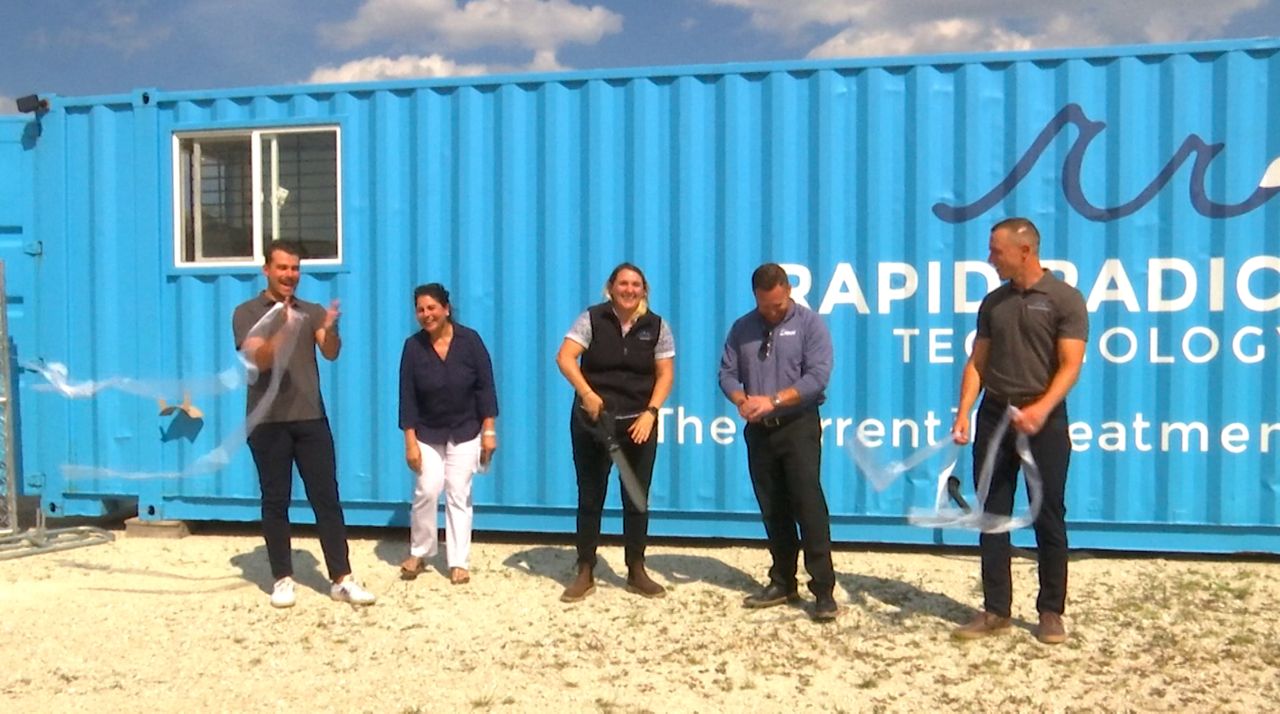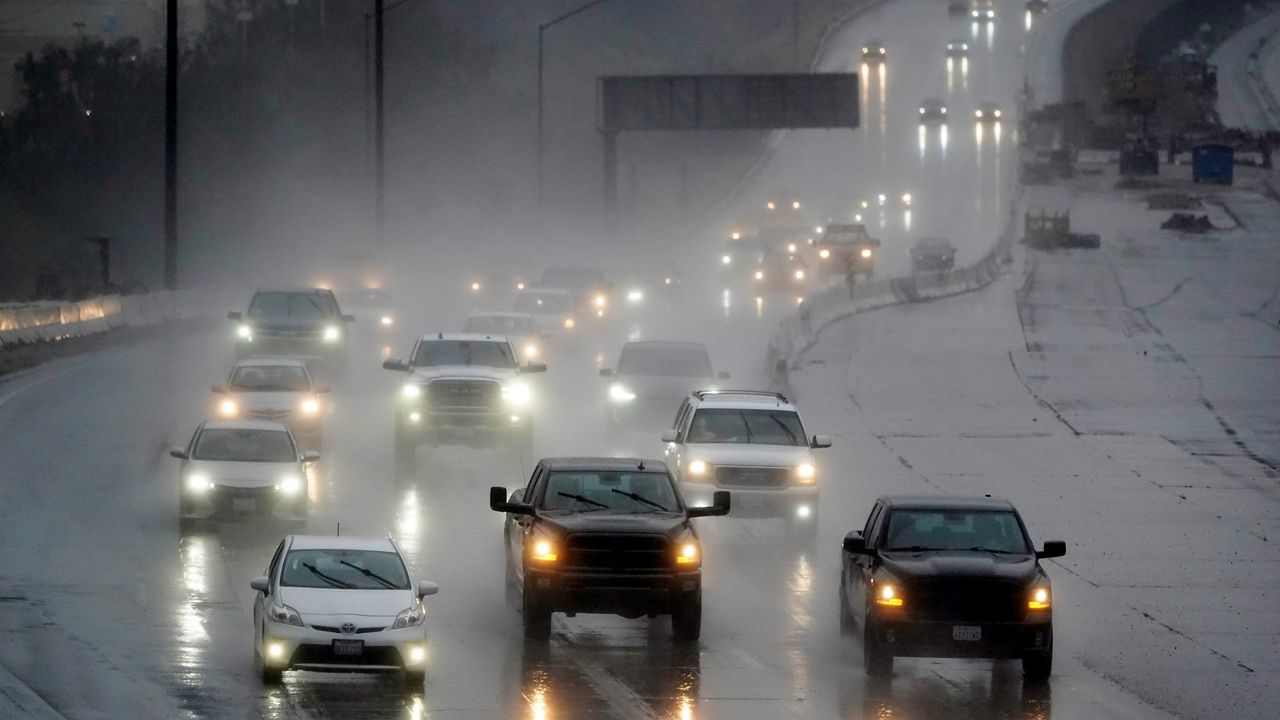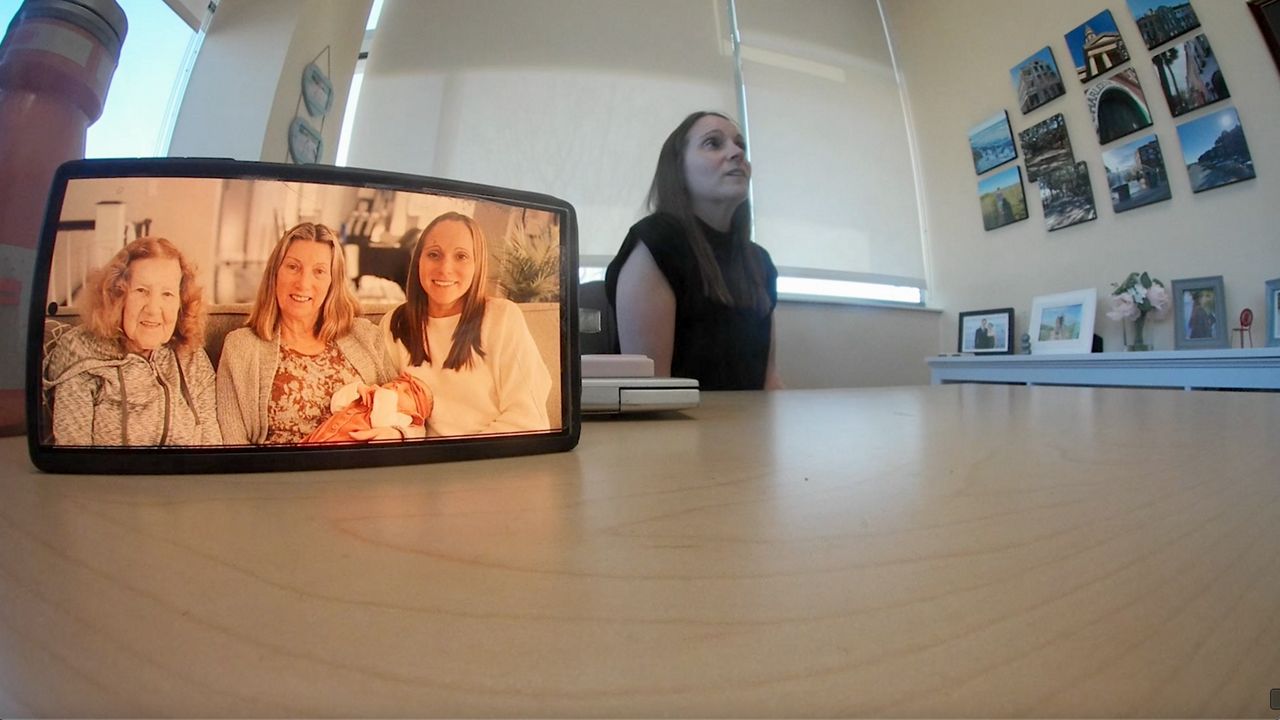MILWAUKEE — A startup company is looking to speed up the process of treating wastewater as a way to counteract sewage overflow issues during heavy rain in the Milwaukee region.
The vision came from Dr. Paige Peters when she was pursuing her master’s degree at Marquette University in 2015.
“We are standing in the control room essentially for a big project and a big system that can ultimately treat wastewater 22 times faster than conventional treatment with the goal of eliminating these untreated sewage discharges that occur during intense storm events,” said Peters.
Peters said she wanted to use her engineering degrees to make a difference in her city. This led to the founding of her company Rapid Radicals Technology in 2016.
“Every year 850 billion gallons of water of untreated sewage go into our lakes and rivers and it’s a problem that we can solve,” said Peters.
After years of research and development, Rapid Radicals Technology designed a system that treats sewage overflows in 20 minutes. This is compared to the 8-14 hours it can take with normal sewerage treatment methods.
The company partnered with Marquette University on the licensing agreement to start processing the technology on a larger scale.
“We are water out of the sewer, which is a very diverse matrix. It looks different every day, every minute,” said Peters. “We are pulling it out and running it through our filter and through the oxidation system and discharging that clean treated effluent into the sewer right now. When it’s a full-scale system, it will discharge directly into the river but it will be fully treated.”

The goal is to help agencies like Milwaukee Metropolitan Sewerage District (MMSD) treat sewage more efficiently before it is discharged into places like the Menomonee River. The startup recently opened their first mobile site for MMSD.
MMSD Environmental Research Manager Matt Magruder said having the mobile facility at one of their sites will be useful.
“We are trying to provide relief in the system so it’s not ending up in people’s basements and backing up, so it’s one of the controls we have in place to help prevent that from occurring. So when you get an intense rainfall that overburdens the capacity of your system, unfortunately, overflows can occur,” said Magruder.
Peters and her team celebrated the launch of their first mobile facility with a ribbon-cutting ceremony.
“It’s good to see this technology here at a site where it can be implemented at full-scale, which means a lot,” said Peters. “There are more to come, but I think the message for me is that this is not a problem you can solve in a vacuum. It takes a lot of different people to do it, but it also takes a community that wants to see change happen.”
She said she hopes this is just the beginning and that others are inspired to find solutions for problems in their communities.










